Honey in Ayurveda is an important Ayurvedic ingredient. This blog is a part of the explanatory series of the following shloka from Charak Samhita.
षष्टिकाञ्छालिमुद्गांश्च सैंन्धवामलके यवान् ।
आन्तरीक्षं पयः सर्पिर्जांगलं मधु चाभ्यसेत्।।
Charak Samhita Sutra Sthana (5th Chapter – 12)
In the previous blogs, we explored why Ayurveda recommends rice (shashtika/shali), moong dal (green gram), saindhav Lavan (pink salt), Indian gooseberry, barley, etc. In this blog, let us explore the importance of Madhu or honey in Ayurveda.
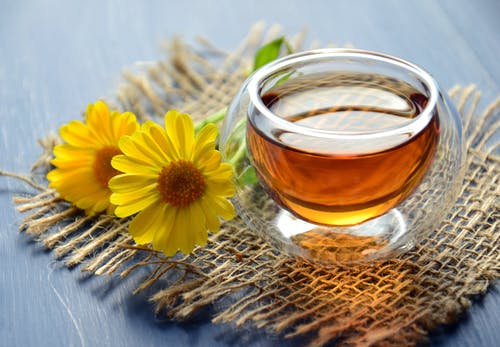
The Etymology of “Madhu”
The Sanskrit word “Madhu” has multiple meanings and references in classical Sanskrit text. The literal meaning of “madhu” is something that is sweet bitter.
As madhu has a distinct meaning, there can be many substances that can be called madhu in different contexts.
In the realm of Ayurveda, its closest material detonation is honey. However, honey has many close vegan substitutes. These substitutes may not contain all qualities of honey, but they are capable of bringing significant health benefits. One of them is molasses or jaggery. It has a warming effect on the body, just like honey.
Read our popular article – Does Ayurveda Recommends Ghee intake every day?
Ayurvedic uses of Honey
Balances Kapha Dosha
Honey is an important Ayurvedic ingredient.
It is the drug of choice for all kinds of kapha disorders. Honey creates warmth and drains excess mucus from the body. Therefore, it is useful in cold, cough, congestive respiratory disorders, asthma, breathing problems, etc.
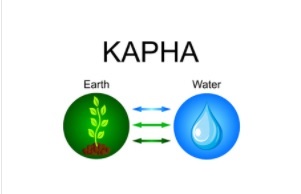
Honey in Ayurveda – Vehicle for Drug Delivery
Yogavahi
Honey or madhu is also called “yogavahi”. The word “yogavahi” means something that unites and carries a substance along with it, just like blood serves as a carrier for oxygen inside the body.
It also implies that Yogavahi is a substance that works as a catalyst or the vehicle for drug/nutritional delivery inside the body. Therefore, it is also extensively used in various Ayurvedic medicinal preparations.
Anupaan
Honey is also used as “anupaan” or the carrier of medicines. Anupaan is a substance that helps to increase the bioavailability and rate of absorption of Ayurvedic medicine. And honey is an excellent anupaan, esp. for all kinds of kapha disorders.
For example, a classical Ayurvedic medicine for cough and cold, Sitopaladi churna is normally mixed with honey for enhanced and faster relief in cough.
Therefore, honey is a food that acts as a medicine.
Honey or Chemical Cocktail
The honey available today is nothing short of a combination of hazardous chemicals.
This honey may contain all kinds of toxic chemicals like fertilizers, pesticides, weedicides, etc.
Worse still, the beehives are strewn with antibiotics to prevent diseases in the honey bees. These antibiotics enter the honey through the honey bees.
This excess dose of antibiotics along with the honey can make you antibiotic-resistant. The undesirable presence of antibiotics in food items like milk, honey, etc is the primary cause for antibiotics resistance. And it is a very dangerous situation. Antibiotics are the single most important defense against a broad spectrum of pathogens. If your system becomes antibiotic-resistant, then a smaller dosage of antibiotics may not affect any kind of pathogenic infection.
People with antibiotic resistance have to take a significantly higher dosage of antibiotics for the long term for any relief. And the long-term heavy dosage of antibiotics can cause severe harm to body organs like the liver or kidneys.
Therefore, it is imperative to ensure that the honey you consume is free of hazardous chemicals like fertilizers, pesticides, antibiotics etc. But it should be raw and unheated too. Let’s see why it is crucial.
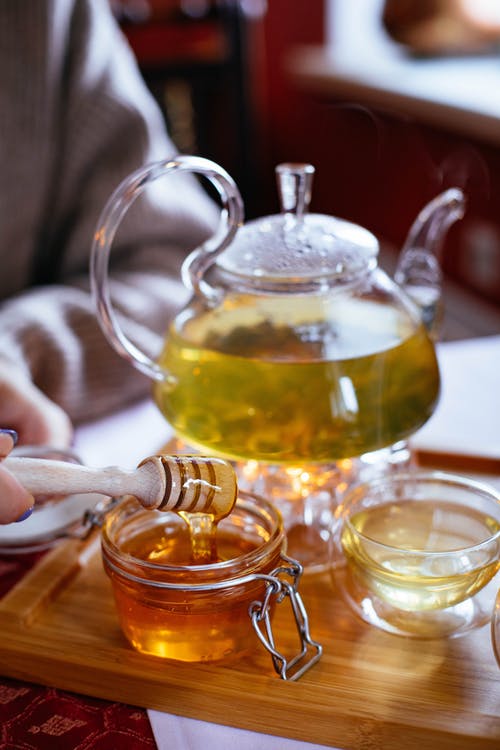
The Heated Honey
According to Ayurveda, honey should never be heated. Honey contains multiple enzymes. These enzymes are essentially proteins that can get denatured when heated. They can also exert a toxic effect on the body.
Ayurveda believes that heated honey becomes toxic and should never be consumed. This heated honey may not show an immediate toxic effect, but its regular consumption may have a detrimental effect on the overall metabolism of the body.
Unfortunately, most of the honey available in the market today is pasteurized. The process of pasteurization involves heating honey to a very high temperature and suddenly cooling it. This treatment may increase the shelf life of honey. However, it makes honey unsuitable for consumption according to Ayurveda.
Therefore, if you want to get the real Ayurvedic benefits of honey, please ensure that you consume raw filtered honey and not the pasteurized one.
The Colony Collapse
Since 2006, the honey bee population has seen a steep decline due to environmental pollution, the use of chemicals like pesticides, and multiple other reasons.
This decline is termed the colony collapse disorder. It is an abnormal phenomenon, where the majority of the worker bees desert the queen and the young ones. Colony collapse has become a global phenomenon, severely decreasing honey production throughout the world.
However, in spite of the reduced honey production, there has been a curious increase in the supply of commercial honey.
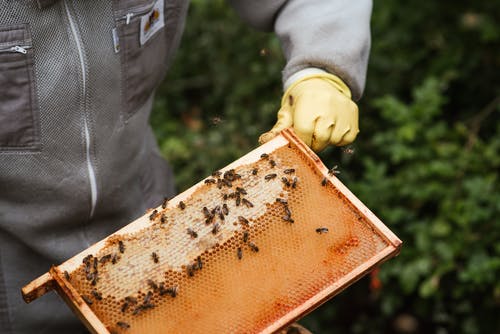
Honey Adulteration
In ancient times, molasses or jaggery water was used to mimic honey. However, this ancient technique of honey adulteration is easy to detect and counter.
However, the extra unaccounted honey is artificially produced in the labs. And, it can mimic real honey in most scientific tests. Therefore, synthetic honey is harder to detect.
But, the health benefits (or health hazards) of this honey are yet unknown. So, if you are consuming honey, make sure that you know its source. Go local and protect your health and environment.
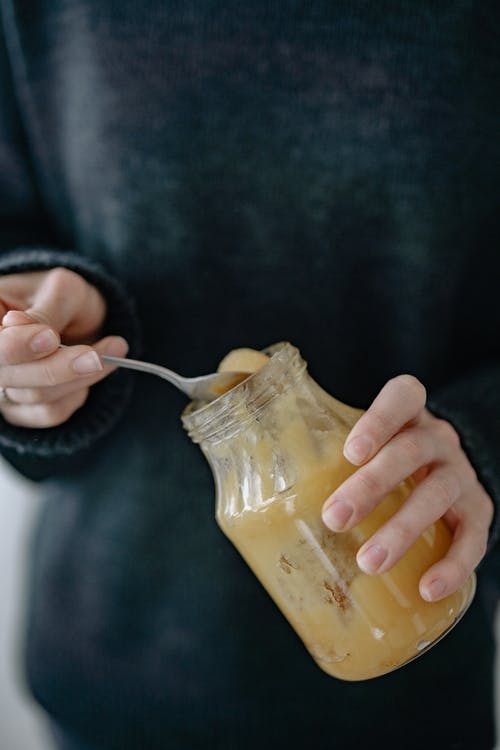
To Conclude
The bottom line is that honey is excellent for health. That’s why you can consume it every day. It is esp. helpful if you have a kapha dominant body type or if you are prone to kapha related disorders like cold, cough, respiratory problems, etc.
This blog is the last in the series for the above-mentioned shloka. I hope that this information helps you to ensure a healthier and happier life.
